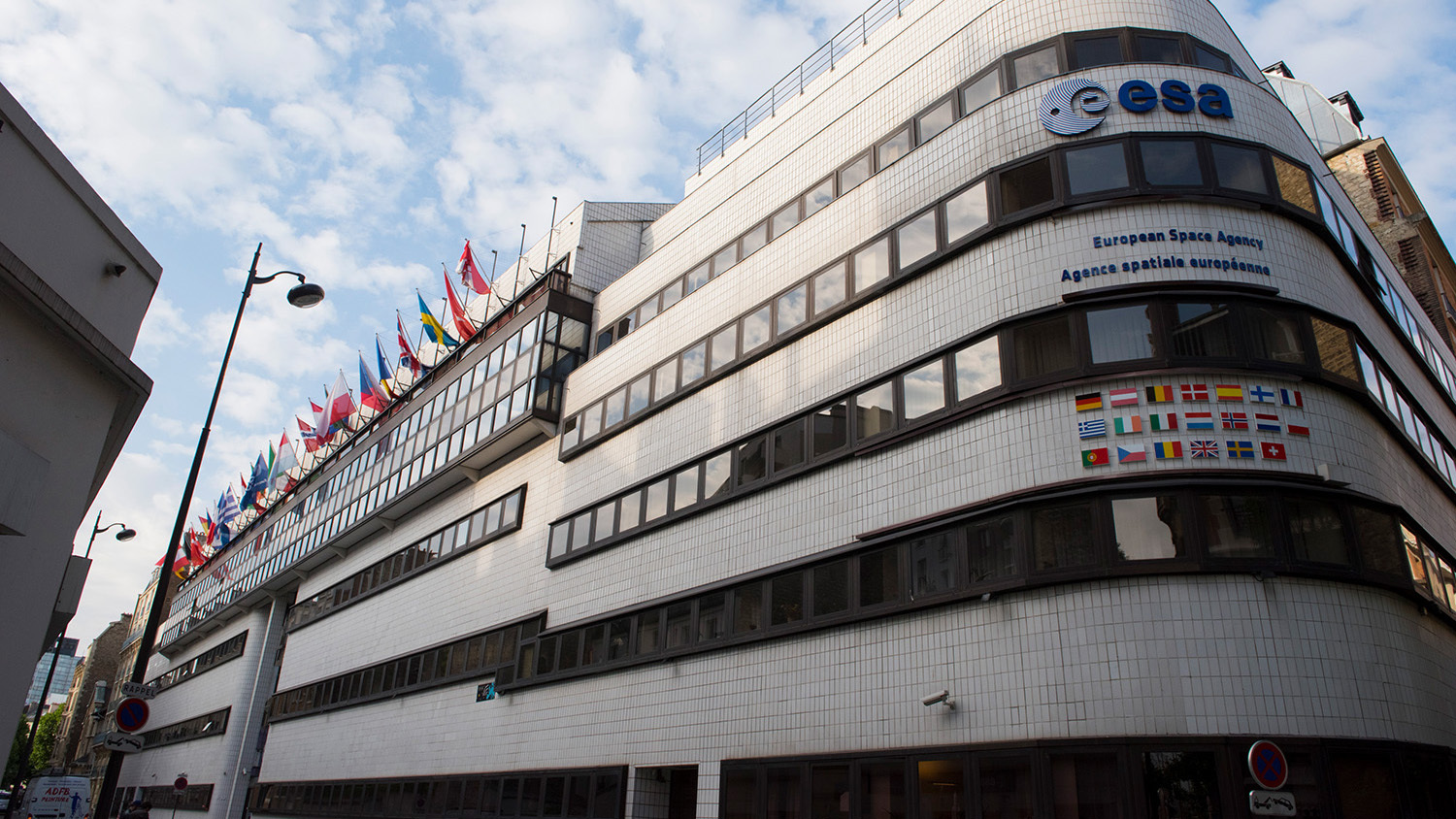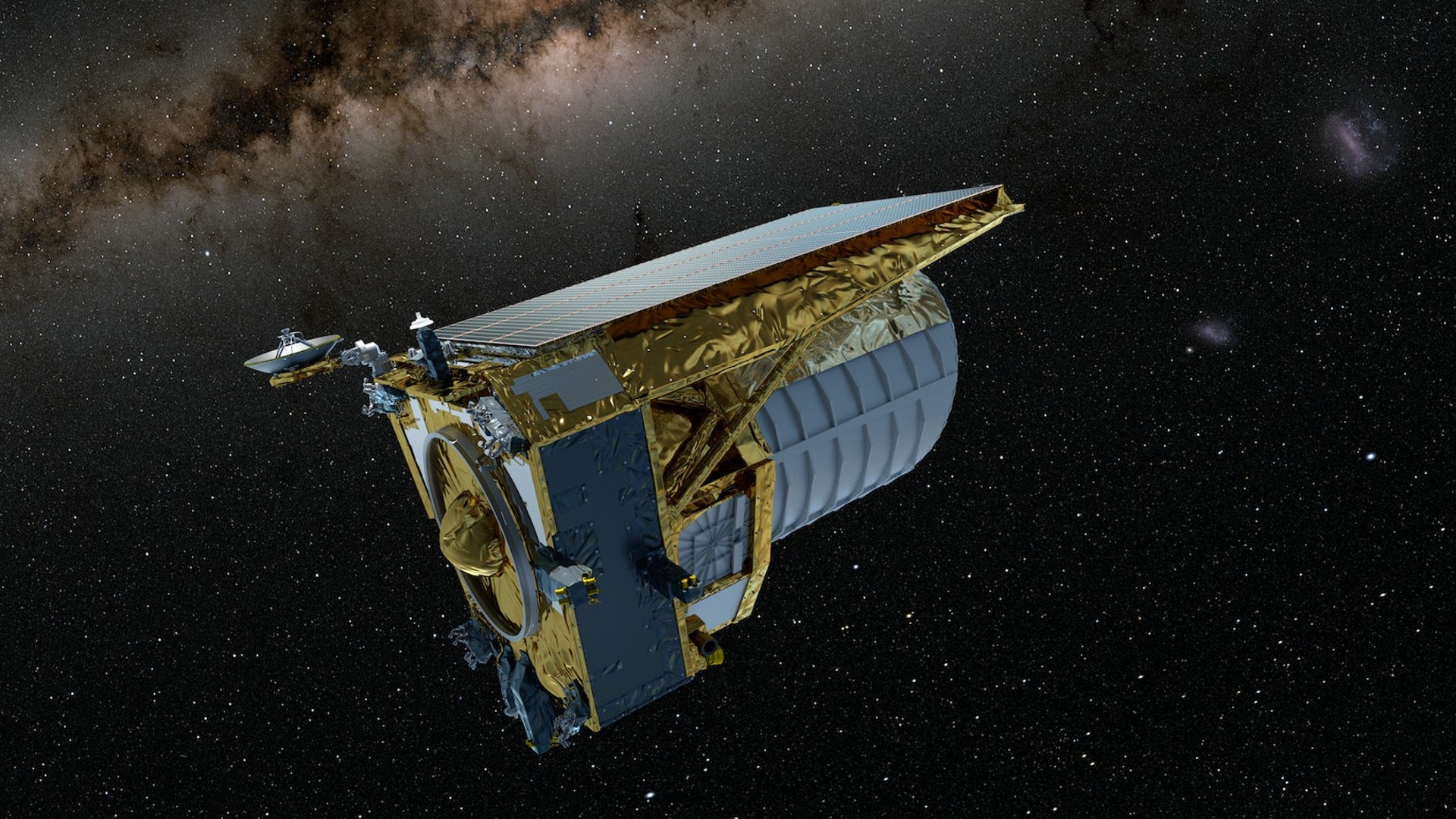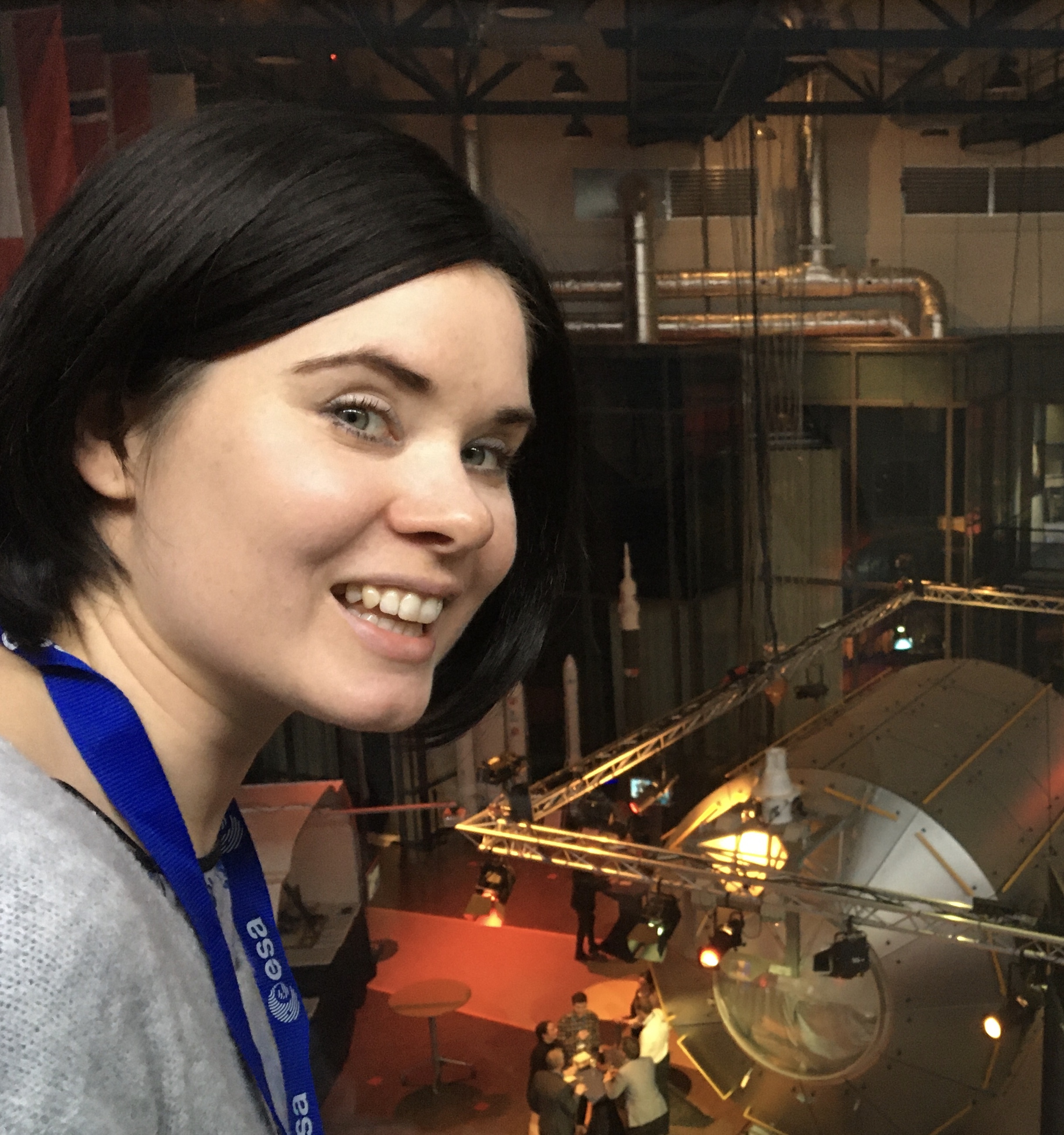The European Space Agency has a transparency problem — but it's completely legal
ESA is far less transparent than its U.S. counterpart, NASA.

The European Space Agency has come under criticism from journalists for its reluctance to disclose information. But here's the catch: The intergovernmental organization that redistributes billions of euros in taxpayer money is not obliged to comply with any Freedom of Information law. It stands above it. Here's why.
The legal world of the European Space Agency (ESA) is a strange one. The organization, founded in 1975, is governed by its Convention, a 130-page document that outlines not only the space agency's governing structure but also the many immunities and privileges its staff members and representatives enjoy. Above all, the document puts ESA above any jurisdiction — that is, it is not subject to the legal framework of any country that may have a stake in ESA and in which ESA facilities may reside. According to the Convention's annex, all ESA staff members not only have "immunity from jurisdiction in respect of acts, including words written and spoken, done by them in the exercise of their functions" but also "enjoy inviolability for all their official papers and documents."
That, according to legal experts that Space.com talked to, is common for intergovernmental organizations. But it creates a weird setup in which the taxpayers who fund the activities of these organizations have no legally enforceable insight into how their money is being spent.
Contrast that, for example, with the European Union (EU), which, contrary to some popular beliefs, has nothing to do with ESA. According to Article 15 of the Treaty on the Functioning of the European Union, citizens of EU countries have "a right of access to the documents of the European Parliament, the European Council and the European Commission." Under this Act, journalists can even request access to personal emails and text messages of EU officials, if those might help shed light on suspicious activity.
Related: US Department of Justice sues SpaceX for hiring discrimination
For example, in 2021, European journalists requested access to text messages exchanged between EU Commission President Ursula von der Leyen and the CEO of pharma giant Pfizer, in which the two negotiated a deal to purchase 900 million COVID-19 vaccines. The text messages were never disclosed, as, according to EU officials, they no longer existed. That led the journalists involved to complain to the European ombudsman, who reprimanded von der Leyen. The issue didn't end there. The EU president now stands accused in front of a Belgian court of having acted without member states' knowledge in the Pfizer vaccine matter.
Compare that with the tools that journalists have to request information about the deals made by ESA, an organization with an annual budget of over 7 billion euros ($7.6 billion US at current exchange rates), which in recent years has been lobbying for ever higher financial contributions from its member states as it intends to portray itself as a major global space player, on par (sort of) with the American space agency, NASA.
Get the Space.com Newsletter
Breaking space news, the latest updates on rocket launches, skywatching events and more!
In early August, Ars Technica's Senior Space Editor Eric Berger sparked a discussion on X, formerly known as Twitter, commenting on ESA's reluctance to share timely information about the testing of Europe's new Ariane 6 rocket, a project known to be years behind schedule and heavily over budget.
"The European Space Agency's lack of transparency with regard to the Ariane 6 rocket's development and testing is completely unacceptable," Berger said in the post. "This is a publicly funded project. Put another way, if NASA was trying to pull this garbage with the Space Launch System or other major project in the United States, the U.S. space press corps would be up in arms."
Unlike ESA, NASA is not above the law. The American space agency, bound by the U.S. 1966 Freedom of Information Act (FOIA), employs a dedicated FOIA officer and has an easy-to-use online form on its website through which any member of the public can file a FOIA request. NASA may refuse to disclose documents that it considers protected, the agency says in a statement, but the rejected members of the public have a right to file appeals or even take the agency to court over such refusals. Similar procedures are in place for the U.K. Space Agency and other government-funded organizations in the democratic world.
ESA can fend off such requests much more easily. In the discussion spurred by Berger's initial post, BBC science correspondent Jonathan Amos compared extracting information from ESA to "pulling teeth" and described the situation as "a deep running sore."
Responding to Space.com's request to comment on the situation, an ESA spokesperson confirmed that national (or European) "Freedom of Information Acts are not directly applicable to ESA, since intergovernmental organizations are generally not subject to the laws of individual Member States."
The spokesperson further wrote that "the ESA Council and Director General have taken several steps in recent years with a view to further increase transparency. Among other steps, these include the Council authorizing the public release of certain categories of official ESA documents listed on this website."

In addition to that, the spokesperson said, "the Director General may on a case-by-case basis propose the public release of any document presenting an interest for the public or conduct press conferences informing the public and media on matters related to the Council."
In other words, ESA decides what it wants to disclose and what it doesn't. Full stop. Unlike its bigger partner NASA or the EU, ESA has no FOIA mechanism in place. If journalists fail to get a hold of information, there is no ombudsman or court they can turn to in order to appeal.
The European Centre for Press and Media Freedom, an EU-based nonprofit organization protecting media freedom in Europe, commented on the situation. While "proactive transparency of documents is important," the Centre said, the right to "request information that has not been published is key for journalists to be able to fulfill their duty. If there are no legal tools to ensure publication of documents, journalists cannot fully access information that could be in the public interest."
British Freedom of Information consultant Martin Rosenbaum added: "Intergovernmental organizations such as ESA take important and far-reaching decisions and spend huge sums of public money obtained from the populations of their member states. But often they are completely unaccountable to the public and lacking in transparency. Even when those countries have freedom of information processes for their own public institutions, intergovernmental bodies may escape the reach of national laws, as if they are floating somewhere in space outside any earthly jurisdiction."
ESA isn't the only intergovernmental organization that enjoys this relative freedom from accountability. In his 2017 Report on the promotion and protection of the right to freedom of opinion and expression, the United Nations Special Rapporteur of the Human Rights Council found that most U.N.-funded bodies and intergovernmental agencies don't have an independently enforceable Freedom of Information framework in place.
That might sound strange, considering that access to information held by public bodies is, in fact, enshrined in Article 19 of the Universal Declaration of Human Rights and in Article 19 of the International Covenant on Civil and Political Rights, according to the report.
And some of these organizations take their obligation to transparency seriously. The Special Rapporteur found examples of intergovernmental institutions, including the World Bank, the United Nations Environment Programme and the United Nations Development Programme, that have voluntarily subjected themselves to Freedom of Information policies that include clear timelines for responding to requests and procedures for appealing decisions if requests are declined.
Rosenbaum suggests that one way for intergovernmental organizations such as ESA to bring themselves in line with the general practices of the 21st-century democratic world would be to subject themselves to the law of the countries where they are headquartered. That would allow "citizens of all their member states to use that system to request information in the public interest."
But ESA's response to Space.com's query suggests that the European equivalent of NASA is nowhere near ready to take such a step. In fact, the ESA Convention contains additional obstacles that make it nearly impossible for journalists to obtain ESA documents that have not been officially sanctioned for public release.
There is clearly no requesting access to emails and text messages of ESA bigwigs anytime soon. Ursula von der Leyen must be envious. In its response to Space.com's request, ESA's spokesperson pointed out that the ESA Convention contains "provisions [for] waivers of immunity and a cooperation precept to facilitate the proper administration of justice." How often those waivers are being used, however, remains an open question.
Join our Space Forums to keep talking space on the latest missions, night sky and more! And if you have a news tip, correction or comment, let us know at: community@space.com.

Tereza is a London-based science and technology journalist, aspiring fiction writer and amateur gymnast. Originally from Prague, the Czech Republic, she spent the first seven years of her career working as a reporter, script-writer and presenter for various TV programmes of the Czech Public Service Television. She later took a career break to pursue further education and added a Master's in Science from the International Space University, France, to her Bachelor's in Journalism and Master's in Cultural Anthropology from Prague's Charles University. She worked as a reporter at the Engineering and Technology magazine, freelanced for a range of publications including Live Science, Space.com, Professional Engineering, Via Satellite and Space News and served as a maternity cover science editor at the European Space Agency.









